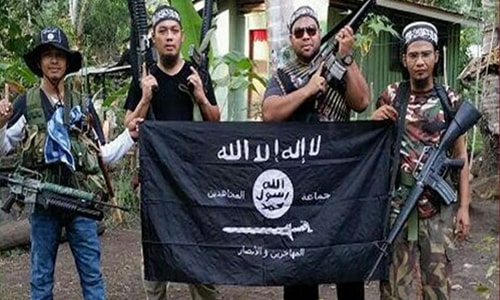Is Southeast Asia unprepared to deal with IS?
Southeast Asia faces a growing risk of extremist violence linked to IS, but law enforcement agencies there are ill-prepared to respond.
 |
Abu Sayyaf militants in the Philippines pose with the Islamic State flag. Photo: Strait Times. |
"The Islamic State (IS) has increased coordination with extremist groups in Southeast Asia," AFP quoted a report from the Institute for Policy Analysis of Conflict (IPAC), Jakarta, Indonesia, as saying on October 25.
The danger lies in the restive southern Philippines, where several radical Muslim groups have pledged allegiance to IS. These groups have links to parts of Indonesia and Malaysia. IS has also chosen a Filipino militant as its “amir,” or leader, for Southeast Asia.
“It is only a matter of time before more deadly violence involving IS-aligned groups occurs. The likelihood of cross-border extremist activity is also increasing,” the report said. However, “most law enforcement agencies in the region remain nationally oriented, with no expertise in addressing extremist groups beyond their borders.”
IPAC warned that the rapidly shrinking territory controlled by IS in Iraq and Syria could increase the risk of revenge attacks in Southeast Asia. The region suffered its first IS-claimed attack in January, when attackers set off a series of explosions in Jakarta, Indonesia, that killed at least seven people.
According to VNE
